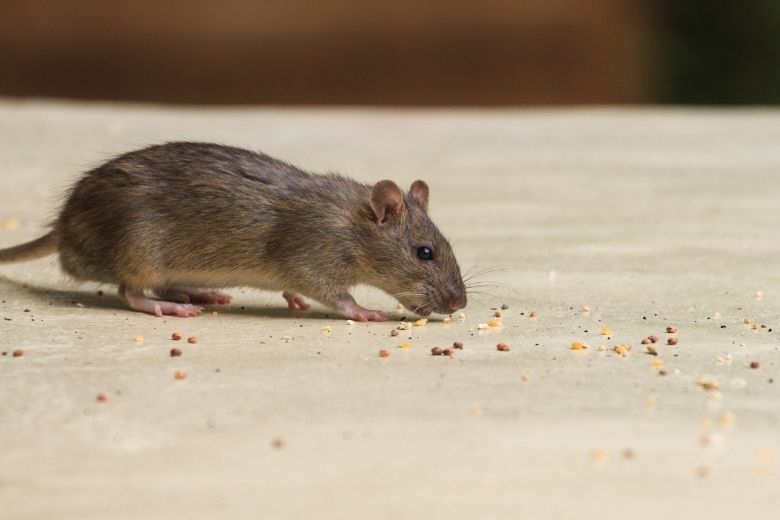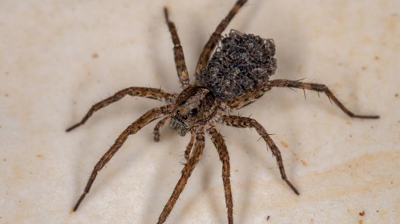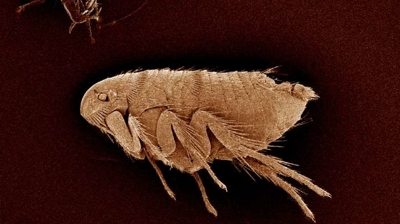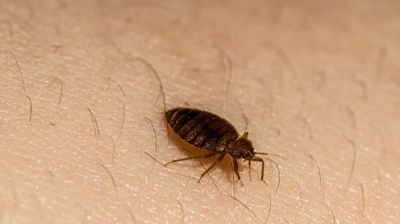
House Mice

Are House Mice Harmful?
House mice (Mus musculus) can be harmful in several ways, affecting both human health and property. Their small size and high reproductive rate make them difficult to control, and their presence can lead to significant issues, including:
- Disease Transmission: House mice can carry and spread diseases such as hantavirus, salmonellosis, leptospirosis, and lymphocytic choriomeningitis (LCMV) through their urine, droppings, and saliva.
- Food Contamination: They often gnaw through food packaging and leave behind feces and urine, contaminating food supplies and potentially spreading bacteria.
- Allergies & Asthma: House mouse droppings, dander, and urine can trigger allergic reactions and exacerbate asthma symptoms, particularly in children and individuals with respiratory conditions.
- Parasite Carriers: House mice can introduce fleas, mites, and ticks into homes, which can spread additional diseases to humans and pets.
- Gnawing on Wires: House mice chew on electrical wires, which can cause short circuits and increase the risk of electrical fires.
- Damage to Insulation & Walls: They create nests by burrowing into insulation, drywall, and furniture, leading to costly repairs.
- Compromising Structural Integrity: Persistent infestations can weaken wooden structures, including beams and flooring.
- Discomfort & Anxiety: The presence of mice in a home or business can cause distress, fear, and anxiety.
- Disruptions to Sleep: Nocturnal activity, including scratching noises in walls and ceilings, can disturb sleep patterns.
- Reputation Damage: In businesses, especially in food service and hospitality, a rodent infestation can lead to negative customer reviews, health code violations, and even closure.
Effective prevention measures include sealing entry points, proper food storage, regular sanitation, and our professional pest control services when necessary.
Learn more: Do House Mice Bite? || What Do House Mice Eat?
House Mouse Removal
House mice may look small and harmless, but these mice create a surprisingly serious set of problems once they settle into a structure. They contaminate food and surfaces with droppings and urine, which can spread pathogens such as salmonella, leptospirosis, and lymphocytic choriomeningitis virus. Their constant gnawing damages insulation, drywall, stored items, and even electrical wiring—one of the leading causes of preventable house fires. Mice also reproduce at a rapid pace, turning a minor intrusion into a widespread infestation in a matter of weeks, and they often bring fleas, mites, and other parasites with them. Beyond the health and structural risks, their presence erodes comfort in the home, creating persistent noise, odor, and stress. Removing them quickly and thoroughly protects the property, the people living in it, and the long-term cost of managing what can escalate into a significant problem.
Learn more: How To Get Rid Of House Mice
House Mouse Control
Hiring our professional pest control for house mice is the most effective way to eliminate an infestation safely and permanently. Here’s why:
- Accurate Identification: House mice (Mus musculus) may be confused with other rodents, like deer mice or rats. Our professionals can correctly identify the species, which is critical because control methods differ depending on the type of rodent. Misidentification can lead to ineffective treatments and continued infestation.
- Comprehensive Inspection: Mice are adept at hiding in walls, attics, basements, and behind appliances. Our professionals perform a thorough inspection to locate all entry points, nesting sites, and signs of activity. Homeowners often miss these hidden areas, which allows the infestation to persist even after DIY efforts.
- Safe and Effective Control Methods: Our professionals use a combination of strategies that are more effective than single DIY methods, strategically placing snap traps, live traps, or glue traps in high-traffic areas, using rodenticides in tamper-resistant bait stations to reduce risk to children, pets, and non-target wildlife, sealing cracks, holes, and gaps to prevent future entry, and helping you minimize food, water, and shelter sources that attract mice.
- Health and Safety Considerations: House mice carry diseases (like Hantavirus, Salmonella, and Lymphocytic choriomeningitis virus) and can contaminate surfaces with urine, droppings, and hair. Our professionals follow strict safety protocols to reduce the risk of exposure when cleaning up infestations.
- Preventing Property Damage: Mice chew on electrical wires, insulation, drywall, and stored materials. Our professional intervention not only removes the mice but also identifies vulnerable areas and prevents further damage. This can save homeowners significant repair costs.
- Long-Term Solutions: DIY methods may temporarily reduce numbers, but mice reproduce quickly, and populations can rebound in weeks. Our professionals provide ongoing monitoring and follow-up treatments to ensure the infestation is fully eradicated and doesn’t return.
- Cost-Effectiveness: Our professional services save money in the long run by preventing repeated DIY purchases, property damage, and potential health-related expenses.
Our professional pest control services combine expertise, safe methods, thorough inspections, and preventive strategies. This ensures that house mice are removed efficiently and that your home or business remains protected from future infestations.
House Mouse Exterminators
When it comes to eliminating house mice, our local exterminators deliver a level of precision and accountability that large national companies struggle to match. Our local professionals work every day with the specific conditions of our region—its climate patterns, building styles, seasonal mouse behaviors, and typical entry points—so our strategies tend to be more accurate and efficient right from the start. We can respond faster, provide more consistent follow-up, and adjust our treatments based on what we actually observe on site rather than relying on standardized, one-size-fits-all national protocols. Our local team also depends heavily on our reputation and word of mouth, which translates into more thorough inspections, clearer communication, and a stronger commitment to fully resolving the problem rather than cycling through routine visits. Because house mice multiply quickly and exploit even the smallest structural gaps, those nuances matter; our professionals who know the area intimately are far more likely to successfully eliminate an infestation completely and help prevent it from returning.
House Mouse Solutions
Our exterminators use Integrated Pest Management (IPM) to control house mice because these rodents reproduce rapidly, contaminate food, spread diseases, and can cause structural damage by gnawing on wires, insulation, and building materials. IPM begins with a comprehensive inspection to identify signs of activity, such as droppings, gnaw marks, nesting areas, and potential entry points, as well as environmental factors that attract house mice, including accessible food, water, and shelter. Management strategies focus on habitat modification, including improving sanitation, removing clutter, securing food and garbage, and eliminating water sources. Physical exclusion, such as sealing cracks, gaps, and vents, prevents mice from entering structures, while targeted interventions, including traps and selective rodenticides, are applied strategically and only when necessary. Ongoing monitoring allows our exterminators to track activity, assess the effectiveness of treatments, and detect reinfestation early. By integrating inspection, habitat management, exclusion, selective control, and monitoring, IPM provides a long-term, effective, and environmentally responsible approach to managing house mouse populations.
What Do House Mice Look Like?
House mice (Mus musculus) are small rodents with distinctive physical characteristics. Here's a detailed description of what house mice look like:
- Size: House mice are relatively small, measuring about 2.5 to 3.7 inches (6.4 to 9.4 cm) in body length. Their tails add another 2.5 to 4 inches (6.4 to 10 cm) to their total length.
- Body: They have compact bodies with a somewhat elongated shape. Their bodies are covered in soft fur.
- Fur Color: The fur of house mice is typically grayish-brown, but the exact shade can vary. Some individuals may appear more brown, while others may have a grayer hue. The belly is usually lighter in color, often a pale gray or cream.
- Ears: House mice have relatively large ears that are prominent on their heads. The ears are typically covered in a fine layer of fur.
- Eyes: Their eyes are relatively small, dark, and shiny. They have good low-light vision, which helps them navigate in the dark.
- Tail: The tail of a house mouse is long and slender, typically measuring about 2.5 to 4 inches. It is scaly and nearly hairless, with a slightly darker color than the body.
- Snout: House mice have pointed snouts, which they use for sniffing and exploring their environment.
- Whiskers: Like many rodents, they have prominent, long whiskers (vibrissae) on their faces. These whiskers are highly sensitive and help them navigate and detect objects in their surroundings.
- Limbs: House mice have four legs with small, dexterous paws that are adapted for climbing and exploring. Their front paws have sharp claws that are useful for digging and manipulating food.
House mice are small rodents with soft, grayish-brown fur, large ears, and a slender, scaly tail. They have distinctive facial features, including pointed snouts and prominent whiskers, which aid in their exploration and foraging activities. These physical characteristics allow them to adapt and thrive in various environments, particularly in human-occupied spaces.
Learn more: House Mice vs Field Mice
Where Are House Mice Found?
House mice (Mus musculus) are highly adaptable rodents and can be found in a wide range of environments, particularly in areas where humans live and work. Here is an overview of where you might find house mice:
- Homes: House mice are often found in residential buildings. They can establish nests in walls, attics, basements, and crawl spaces. These locations provide shelter and warmth, making them ideal for mice to breed and raise their young.
- Commercial Buildings: House mice frequently infest commercial properties such as offices, warehouses, factories, and retail stores. They can damage wiring, insulation, and stored goods in these locations.
- Agricultural Settings: Mice are common in rural areas, especially on farms. They can cause significant damage to crops, grains, and stored agricultural products.
- Restaurants and Food Service Establishments: Food establishments provide a reliable source of food for mice. They may hide in kitchens, storage areas, and refuse bins.
- Grocery Stores and Supermarkets: Mice can be attracted to these locations due to the abundance of food items. They may nest in stockrooms, storage areas, or even in the store itself.
- Outdoor Environments: House mice are not limited to indoor spaces. They can also be found outdoors, often nesting in burrows, shrubbery, or tall grass near human structures. They may access indoor areas from outdoor nests.
- Transportation and Vehicles: Mice can sometimes be found in vehicles, especially if they are parked for extended periods. Mice can enter vehicles seeking shelter, and they can cause damage by chewing on wiring and insulation.
- Public Buildings: Public spaces like schools, libraries, and municipal buildings can also be vulnerable to mouse infestations.
- Storage Facilities: Warehouses and storage units are attractive to mice because of the availability of stored goods, including cardboard boxes and textiles.
- Recreational Areas: Campgrounds and cabins may have house mice, particularly if they are in proximity to wooded or natural areas.
- Urban and Suburban Areas: House mice are adaptable and can be found in both urban and suburban settings. They exploit opportunities to access food, water, and shelter.
- Parks and Gardens: In some cases, mice can also be found in public parks and gardens, especially if these areas are near human habitation.
House mice are highly versatile in terms of habitat and can be found in a wide variety of settings. Their presence is often associated with the availability of food, shelter, and water. Due to their ability to adapt to different environments, it's essential to take measures for pest control in places where house mice can cause problems or health concerns.
House Mouse Life Cycle
The life cycle of house mice (Mus musculus) is characterized by rapid reproduction and development. Below is an overview of the life cycle of house mice:
- Birth (Parturition): House mice give birth to their young, called pups, in nests. The gestation period for a pregnant female mouse is typically about 19 to 21 days. A typical litter size can range from 5 to 12 pups, although it can be larger or smaller.
- Infancy (0-14 Days): Newborn pups are born hairless, blind, and deaf, and they are entirely dependent on their mother for nourishment and care. During this stage, they primarily feed on their mother's milk. The mother mouse keeps the nest warm and provides constant attention to her offspring.
- Weaning (15-21 Days): As the pups reach about two to three weeks of age, they start to grow fur, open their eyes, and become more mobile. They begin to transition to solid food while still nursing from their mother. Weaning is generally complete by the end of the third week.
- Juvenile (21-35 Days): At this stage, the young mice, known as juveniles, become more independent. They explore their surroundings, play with each other, and develop their social skills. They continue to grow and develop rapidly.
- Sexual Maturity (6-10 Weeks): House mice typically reach sexual maturity at around 6 to 10 weeks of age, but this can vary depending on factors such as nutrition and environmental conditions. Female mice can become pregnant shortly after reaching maturity.
- Reproduction (Throughout Adult Life): Female house mice have a high reproductive rate and can give birth to litters of pups approximately every three weeks. They may continue reproducing throughout their adult life, with the number of litters varying depending on environmental factors and the availability of resources.
- Lifespan: In the wild, the lifespan of a house mouse is relatively short, typically ranging from 9 months to 1.5 years. Predators, disease, and environmental hazards are among the factors contributing to their relatively short lifespan.
House mice are prolific breeders, and their rapid reproductive cycle allows their populations to grow quickly, especially under favorable conditions. This high reproductive rate is a key factor in their ability to adapt and thrive in various environments, but it can also lead to issues when they become pests in human-occupied spaces. Effective pest control measures are often necessary to manage mouse infestations.

Hear From Our Happy Customers
-
"Great Communication"
Tech was on time, communication was great, and he accommodated my needs.
- Alonzo W. -
"Professional & Considerate"
I’m pleased with Miche services. Jarvis came today. Professional and considerate. Thank you!
- Judy B. -
"Wonderful Service"
Wonderful service. Jarvis is great. Took care of everything I needed. Thank you!
- Henry P. -
"Exceeds Expectations"
I can’t say enough positive things about this company... The tech that came out, Jarvis went above and beyond my expectations. Thank you guys, I will continue using your services.
- Jake M. -
"Fantastic & Patient"
Jarvis was fantastic and patient. He answered my questions with an in-depth explanation and addressed all of my areas of concern. Would love for him to be my assigned tech going forward. Well done!
- Yonnette M. -
"Very Knowledgeable"
The tech that arrived was courteous, professional, and very knowledgeable. He was Great.
- Uerial I.



